The content of the article
Every pet that a person takes care of must be loved, cared for, pampered and cared for as best as possible if the pet is suddenly ill or is undergoing a certain period of moral oppression due to a change of residence. There are also situations where pets can eat something that they are not supposed to eat, which can cause food poisoning. It is not uncommon for animals with rat poison poisoning to enter veterinary clinics, and far from every cat can be saved. In order to know exactly how to help the animal, it is necessary to have an idea of the existing external signs and the clinical picture of poisoning in cats.
Reasons and possible situations
Poisoning a cat with rat poison can occur in several ways: the direct way - this is when the animal independently consumed poison, and indirectly by eating an infected product or an animal that died from rat poison. In turn, direct infection most often occurs because the enviable majority of poisonous rodent baits have a pleasant taste, due to which they become very attractive both directly to pests and pets. The second method of infection, indirect, more common, as a rodent infected with rat poison loses its strength and speed, and, therefore, is an easy prey for cats.
Many modern poisons contain a sufficient amount of toxins, not only to destroy a small rodent, but also to cause irreparable harm to the body much more than a rat or mouse. Absolutely all rat poison poison-based rodent control products available today contain special toxic substances - rodenticides, which may contain active components such as coumarin, indandion or other toxins that have a detrimental effect on the animal. However, most poisoning occurs due to the use of anticoagulant rodenticide, therefore, it is necessary to consider carefully what this substance is. An anticoagulant is a chemical that negatively affects blood coagulability and prevents it from stopping during bleeding. The anticoagulant poison contains various types of coumarin, such as warfarin, brodifacum, zoocoumarin, flomucafen, bromadiolone, coumatetralil.
What is the danger?
Rat poison is an incredibly big threat to pets, because it stops blood clotting, as a result of which the animal dies quite quickly.
It is those people who have a cat who are most often faced with poisoning by rat poison, especially if they live in the private sector. This is justified by the fact that cats are very curious animals, and therefore it is common for them to try everything that can attract them by smell or appearance. The risk of death of a cat from rat poison is especially increased if a neighbor of retirement age lives nearby, who openly does not like all animals without exception. To further aggravate the situation, her attitude to her garden or front garden, which, in her opinion, is spoiled by objectionable animals with her endless uninvited visits, and trampling of planted flowers or vegetables, can aggravate the situation.In a word, in the presence of such an old and harmful neighbor in the vicinity, the cat becomes almost one hundred percent doomed to death. But besides unfriendly neighbors, a pet can face various threats to life, for example, the corpses of poisoned rodents, which can also be eaten by curious cats.
When rat poison enters the stomach, it gradually begins to dissolve and absorb, with the destruction of the walls of the capillaries and the production of vitamin K, which is essential for blood coagulation, is disrupted. These disorders in the body lead to the death of the animal from heavy bleeding from all possible openings on the body, as well as internal hemorrhage in the abdominal cavity and brain.
Clinical picture
The manifestation of symptoms of poisoning does not occur immediately, especially if rodenticides or anticoagulants were included in the composition of the rat poison. In most cases, the manifestation of signs occurs after three to five days from the moment of poisoning of the animal. Usually, until the cat manifests itself, it can feel quite normal due to the internal reserves of the body of vitamin K. Regardless of how the rat poison got directly into the animal’s body by eating an infected rodent or bait for mice, the poison will affect the body equally .
Typically, poisoning with rat poison in cats is manifested:
- lethargy;
- mucosal anemia;
- complete refusal of food intake;
- strong increased body temperature;
- profuse internal / external hemorrhage;
- neurological disorders;
- vomit mixed with blood;
- loose stools with blood;
- hematomas;
- shortness of breath;
- tachycardia;
- convulsions.
If a pet poisoning has occurred with such serious rodenticides as zinc phosphide or strychnine, then signs of ingestion appear almost instantly in the form of lethargy, vomiting, anorexia, seizures and hypertonicity of the paws.
Also, in rat poison, the content of various chemical elements is often present, on the concentration and presence of which directly depends on the rate of development and the severity of damage to the body by toxic substances. Consequently, the period of observation of signs of rat poison poisoning can also be different and varies from several days to a couple of weeks. But, if the poison turns out to be too concentrated and potent, then with a greater degree of probability the owner of the animal should not expect his cat to survive.
First Aid - What the Owner Should Do
If the pet owner notices the first manifestations of the symptoms of poisoning, he must immediately take the animal to the veterinarian to provide the necessary qualified medical care. When the owner develops circumstances so that he cannot quickly deliver the poisoned animal to the clinic, he must first render first aid to the cat and alleviate the suffering of the pet.
The first thing you should do if you suspect poisoning is to induce a vomiting reflex in the cat, as it will help free the body of the possible remains of rat poison, at least those that have not yet had time to absorb into the blood. In order to achieve vomiting, you should give the cat as much as possible to drink, or drink it with a three percent solution of hydrogen peroxide, usually the amount of peroxide is calculated by one teaspoon for every five kilograms of the pet’s body weight.
What to do when poisoning a cat with rat poison?
If a cat was poisoned by rat poison - in order to facilitate the process of its salvation, it would be very nice to know the name of the poison - what kind of poison got into the body of the animal. The preserved packaging, which must be provided to the doctor during the examination of the animal, will be very able to help in this situation.
When the owner discovers that his pet has been poisoned by rat poison, he needs to do the following:
- First of all, the animal should induce vomiting to cleanse the stomach of the remnants of the toxic substance. Thanks to vomiting, the likelihood that the poison is fully absorbed and spread throughout the body will be reduced. There are several ways to induce an emetic urge: syrup from the emetic root in a dosage of four millimeters for a medium-sized cat or three-percent hydrogen peroxide. You can also sometimes give your pet a drink of plenty of boiled water and push a finger on the root of his tongue in order to induce an emetic urge. However, the latter method will be effective only if it is performed immediately after administration of rat poison to animals. Vomiting after three hours from the moment the toxin enters the body is simply meaningless, since rat poison has already completely absorbed into the blood of the animal during this period.
- In addition to cleaning the stomach of the remnants of the poison, it is imperative to give the animal some absorbent preparation, regardless of whether the pet has vomited or not. Usually, activated charcoal is used as an absorbing drug, and other drugs for intoxication are also possible.
- After cleansing the body using absorbent preparations, it is necessary to give the animal an antidote so that the blood coagulation process is restored in the body, injective administration of vitamin K is also necessary.
Diagnosis and treatment
Restorative therapy is an intake of vitamin K1 tablets in animals. The reason for stopping the course of treatment therapy is a trial withdrawal of the drug for a while and a control blood sampling for coagulation tests. How quickly the healing process can go and whether recovery is possible at all will directly depend on what type of rat poison and how much approximately the animal got into the body. Also of great importance is how quickly the poisoning was diagnosed, and whether the correct treatment was prescribed. If the circumstances are relatively favorable, then the chance of a full recovery is 83%. However, in most cases, unfortunately, the situation is a little different due to an untimely appeal to the veterinarian or lack of an antidote. Cases of death from rat poisoning are quite common.
Cat care
During the first day after the toxin enters the body, the cat must be given only water. Then you can transfer it to a special diet in the form:
- Cooked lean meat or fish (these products must first be frozen).
- Boiled chicken or calf liver (you can not pork, as it is considered too fat).
- Boiled vegetables in a small amount - they can be blended with minced meat.
- Oat or rice porridge in a small amount.
The owner needs to be prepared for the fact that the pet may have a lack of appetite for a long time. In no case can you force feed a cat, it is better to seek help from a veterinarian.
Video: first aid for cat poisoning

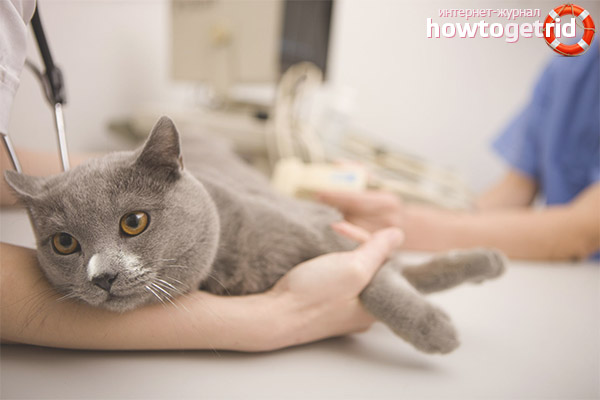
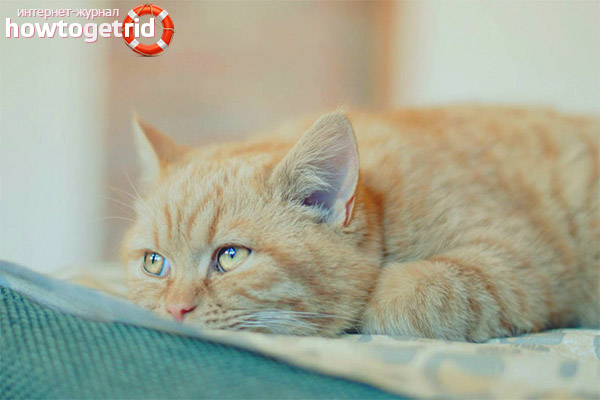
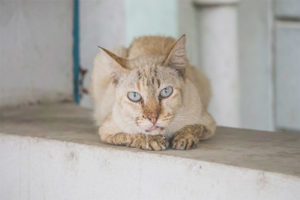
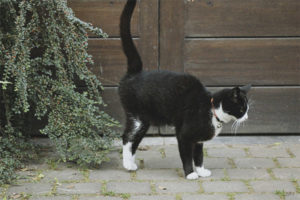


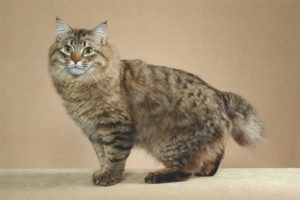
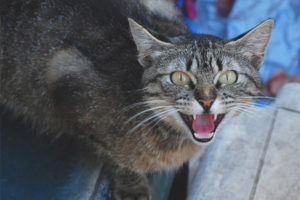
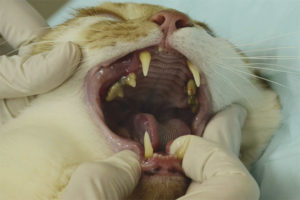
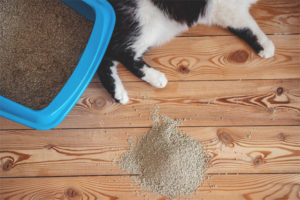
Submit